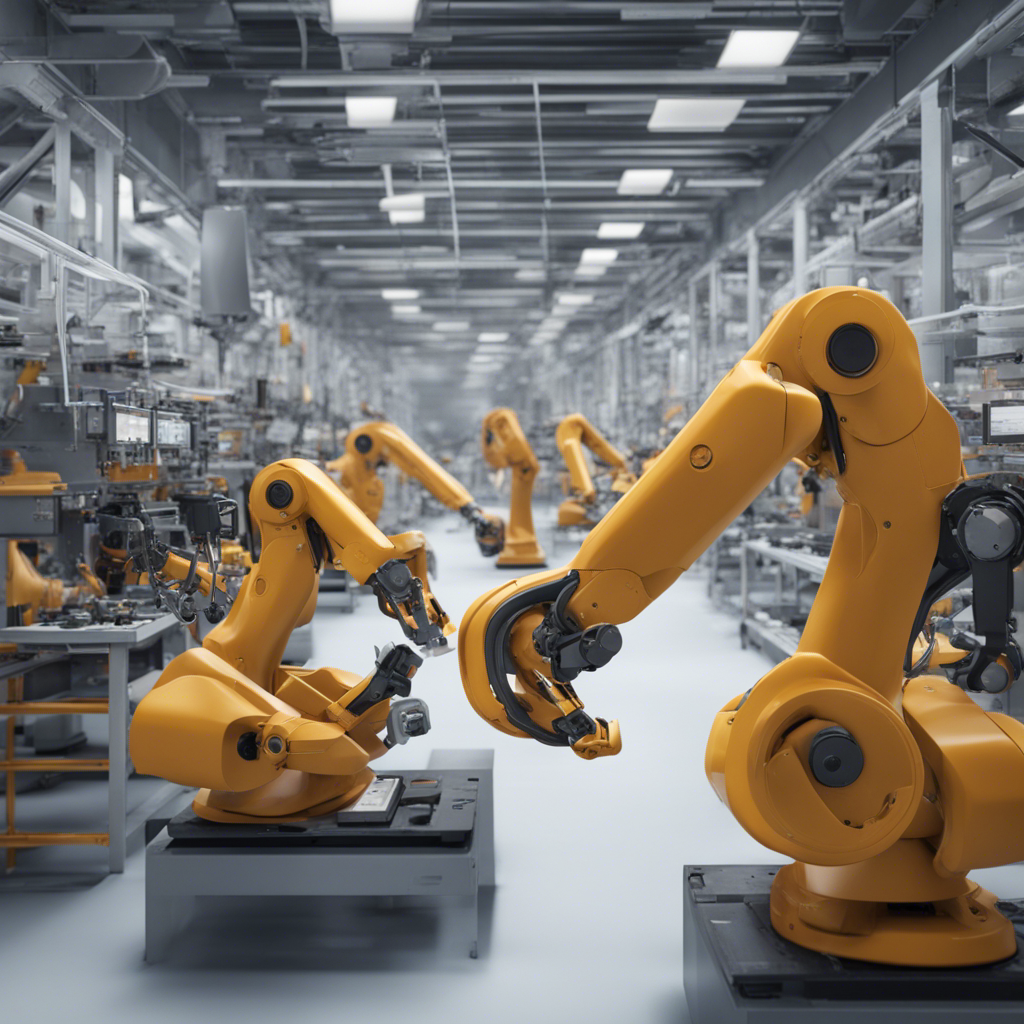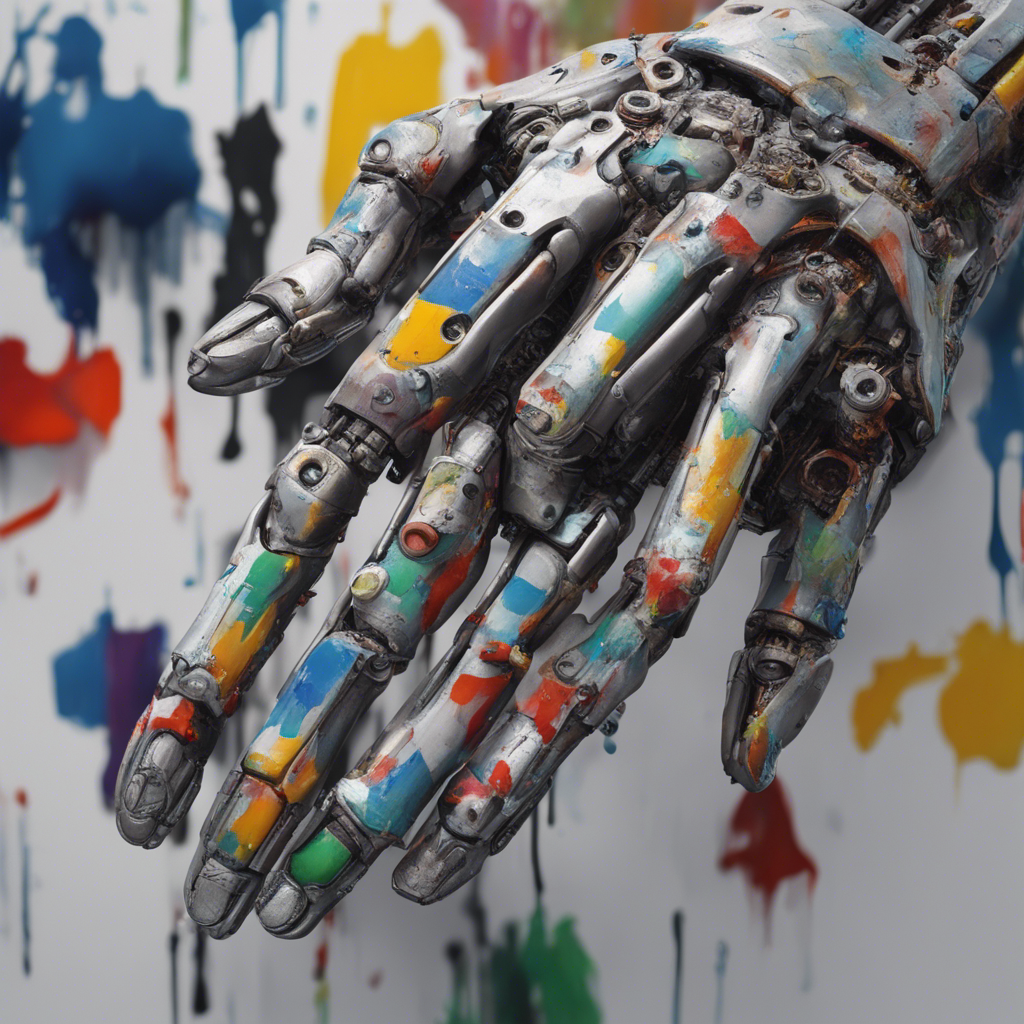
How AI is Revolutionizing Business
Artificial Intelligence (AI) is revolutionizing the way businesses operate across various industries. From enhancing customer experiences to streamlining processes and improving decision-making, AI has become an indispensable tool for organizations striving to stay competitive in today’s fast-paced world. In this blog post, we will explore the various ways AI is transforming business operations and how companies can harness its power to drive growth and innovation.
1. Enhancing Customer Experiences
One of the most significant impacts of AI on businesses is its ability to enhance customer experiences. AI-powered chatbots enable round-the-clock customer support, providing quick and accurate responses to customer queries. These virtual assistants can handle a wide range of inquiries, freeing up human agents to focus on more complex tasks. Moreover, by analyzing customer data, AI algorithms can personalize interactions, recommend tailored products or services, and anticipate customer needs, creating a more personalized and engaging experience.
2. Improving Decision-Making
AI’s ability to process vast amounts of data and extract valuable insights is transforming decision-making processes in business. By leveraging machine learning algorithms, organizations can analyze complex datasets to identify patterns, trends, and correlations that may not be apparent to humans. AI-powered analytics tools help businesses make data-driven decisions, optimize operations, and uncover new business opportunities.
In addition, AI-powered predictive modeling enables businesses to forecast customer behavior, demand trends, and potential risks, enabling proactive decision-making and better resource allocation. This ultimately leads to improved efficiency, reduced costs, and increased profitability.
3. Automating Repetitive Tasks
AI is also revolutionizing business operations by automating repetitive and mundane tasks. Robotic Process Automation (RPA) integrates AI and machine learning to mimic human actions and automate routine tasks such as data entry, invoice processing, and report generation. By reducing manual errors and accelerating processes, businesses can achieve greater productivity and efficiency. RPA can also work in tandem with employees, creating a hybrid workforce that combines human judgment with machine precision.
4. Streamlining Supply Chain Management
The use of AI in supply chain management is transforming how organizations manage inventory, logistics, and demand forecasting. AI-powered algorithms can analyze vast amounts of historical data, market trends, and external factors to accurately forecast demand, optimize inventory levels, and ensure timely replenishment. This results in reduced carrying costs, minimized out-of-stock situations, and improved customer satisfaction.
AI can also optimize routing and improve delivery efficiency by analyzing real-time traffic conditions, weather forecasts, and other variables. By providing accurate delivery estimates and proactive notifications, businesses can enhance their overall supply chain performance.
5. Unleashing Insights from Unstructured Data
A vast amount of business-relevant information exists in unstructured formats such as text documents, images, videos, and social media posts. AI technologies like natural language processing (NLP) and computer vision can extract insights from these unstructured data sources, enabling businesses to gain a deeper understanding of customer sentiments, competitor analysis, market trends, and emerging risks.
NLP algorithms can analyze customer feedback and reviews, social media posts, and support tickets to identify common concerns or issues, enabling businesses to improve their products or services proactively. Computer vision can analyze images and videos for tasks like object recognition, sentiment analysis, or visual search, opening up new opportunities for businesses in areas such as e-commerce, healthcare, and manufacturing.
6. Ensuring Data Security and Compliance
As businesses increasingly rely on data to drive their operations, maintaining data security and compliance has become crucial. AI plays a vital role in detecting and preventing cybersecurity threats by analyzing large volumes of data, identifying patterns, and detecting anomalies. AI-powered systems can detect potential security breaches, alert administrators, and take proactive measures to mitigate risks.
Furthermore, AI can assist businesses in achieving compliance with data protection regulations by automating data privacy assessments, ensuring adherence to privacy policies, and detecting potential breaches. By leveraging AI technologies, businesses can enhance their data security measures and protect sensitive customer information.
Conclusion
AI is revolutionizing business operations across various domains, from improving customer experiences to empowering data-driven decision-making and automating repetitive tasks. By harnessing the power of AI, organizations can unlock new opportunities, gain a competitive edge, and drive growth and innovation in today’s rapidly evolving business landscape.
As AI continues to advance and mature, businesses that embrace this technology will be better equipped to adapt to changing market dynamics, meet evolving customer expectations, and stay ahead of their competition. It’s crucial for organizations to invest in AI research and development, leverage AI-powered solutions, and cultivate a culture of innovation to fully capitalize on the transformative potential of AI in the business world.
*Note: This blog post is intended to provide an objective and comprehensive overview of how AI is revolutionizing business operations. The information presented is based on reputable sources, research papers, and industry insights. Visual content such as diagrams, charts, and infographics may be included to enhance understanding and engagement.






